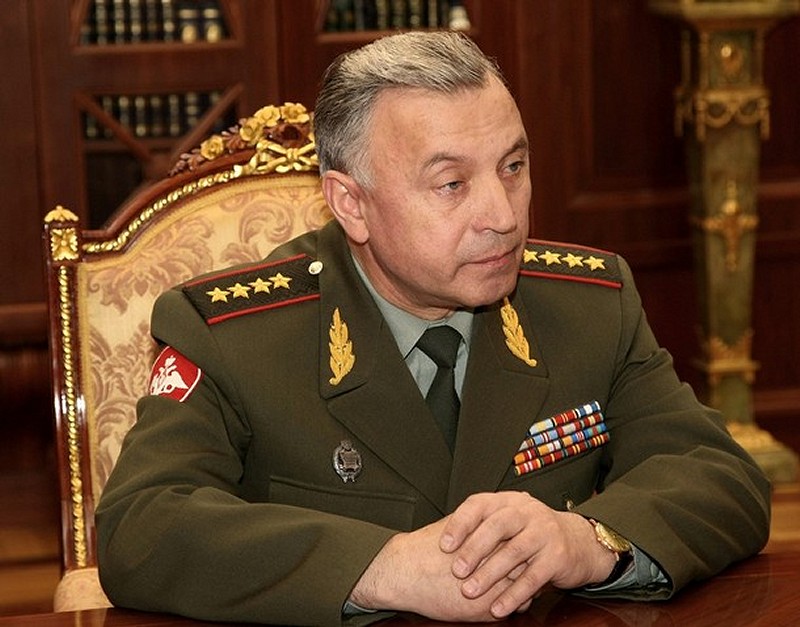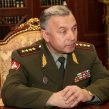
The “Brain” of the Russian Army Degenerates
Publication: Eurasia Daily Monitor Volume: 8 Issue: 67
By:

In a calculated attack on Russian military science, Army-General Nikolai Makarov the Chief of the General Staff, argued that it has impaired progress (EDM, April 5). Marshal Boris Shaposhnikov coined the phrase in his 1929 book, Mozg Armii (The Brain of the Army) which refers to the General Staff maintaining a constant watchfulness on strategic developments and the evolution of military affairs. Makarov’s damning indictment of the state of Russian military science, particularly in relation to research and development, represents a call to reclaim Russia’s traditionally high standards in this area and reconnect theory with the transformation of the armed forces. Makarov’s somber speech during the General Assembly of the Academy of Military Sciences on March 26 sought to reconnect reform with a military-scientific underpinning and assert the role of the General Staff in the process.
The President of the Academy of Military Sciences, Army-General (retired) Makhmut Gareev, widely regarded as Russia’s leading military theoretician, opened the assembly with a wide-ranging speech reflecting on the academy’s achievements to date (https://nvo.ng.ru/concepts/2011-04-01/1_science.html?insidedoc, April 1; Krasnaya Zvezda, https://www.redstar.ru/2011/03/30_03/1_08.html, March 30). Gareev noted that during the past five years the academy prepared 400 theoretical works in response to requests by various government agencies. The General Staff and the Security Council had received detailed reports on the prospects for the development of military-political situation globally, the changing nature of warfare, and proposals for strengthening security in Central Asia as well as improving command and control in the armed forces. Gareev stated that the academy had also prepared an analysis of the future organization of air and space defense. The academy is working on a 12-volume history of the Great Patriotic War in order to counteract any falsification of history.
Gareev linked President Dmitry Medvedev’s wider economic modernization drive to the “new look” and efforts to modernize the armed forces. Warning that Russia may face a new “time of troubles” as it tries to manage the risk of possible conflict between the US and China, Gareev also argued that internal security could no longer be regarded simplistically, and called for detailed scientific work on the problems of “non-military confrontation.” Gareev sees the need to maintain domestic unity and cohesion as a key security task, countering separatism and extremism. Following the ratification of START III, priority must be given to improving the strategic nuclear forces and space systems, creating high-precision weapons, finding ways to overcome missile defense systems, and raising the combat capability and combat readiness of the armed forces. Gareev referred to the threats facing Russia and suggested combat readiness must be geared towards local wars, anti-terrorist operations and “mobilization readiness” for regional and large-scale conflict.
Gareev’s analysis appeared progressive, but not uniformly hence his reference to mobilization. He assigned pole position to the study of the Great Patriotic War, and though he supports the “new look” and the modernization efforts, he insists that lessons drawn from the study of World War II remain valid. Concluding that lessons must also be drawn from events unfolding in the Middle East, expressing alarm over the Arab Spring and giving credence to conspiracy theories portraying events as western inspired through social media and information technology, Gareev was confident that the academy could “constantly track changes” in the strategic environment and forecast trends in future warfare (Krasnaya Zvezda, March 31).
Makarov’s speech, in sharp contrast, lamented the absence of an adequate theoretical basis prior to launching the present reform of the armed forces; an admission that partly explains the trial and error nature of the measures. “It was necessary to urgently pull the army out of the crisis we found ourselves in. As a result, we decided to reform the armed forces even though we did not have a sufficient scientific-theoretical base,” Makarov explained (Interfax, March 29).
Makarov noted the decline in the past twenty years of Russian military science. The revolution in military affairs has essentially passed Russia by, while the US took that revolution to new heights. “It stems from the transition from the large-scale linear operations of multimillion-strong armies to the mobile defense of the only professionally-trained armed forces of the new generation and network-centric military operations” (https://vpk-news.ru/articles/7369, March 30; Krasnaya Zvezda, March 29). Indeed, in Moskovskiy Komsomolets Olga Bozhyeva portrayed Makarov’s speech as representing a rebuke of the General Staff and the failure of military-science to rapidly develop the theory of network-centric warfare and adapt it to suit Russia’s needs (Moskovskiy Komsomolets, March 28).
Referring to dissertations conducted in the defense ministry’s scientific and educational institutions, Makarov attacked their limited scope. This work added little to understanding or solving problems facing military reform. Dissertations often overlap while military scientists are “detached” from the needs of the military. Although such an indictment was not aimed against the General Staff’s Center for Military-Strategic Research (Tsentr Voyenno-Strategicheskikh Issledovaniy –TsVSI), Makarov wanted the TsVSI’s research to be supported by the wider community of military scientists. Makarov rejected buying “morally obsolete” hardware from the domestic defense industry and said the military requires advanced systems with set specifications. Makarov stated that the General Staff has researched the types of war and conflict it is likely to face in the period 2020 to 2025 which will guide procurement needs and force the defense industry to modernize faster. This modernized army will compel manpower changes with an eventual target of reducing the conscript element to around 10 to 15 percent.
Makarov also reasserted the role of the General Staff, arguing that it should play a leading role over other security agencies. He specifically stated that the General Staff controls the development of air-space defense, Vozdushno Kosmicheskaya Oborona –VKO: “Air-space defense will be created in the General Staff, under the General Staff’s leadership, and the General Staff will command and control it” (Interfax, March 26). The Academy of Military Sciences has played a role in formulating a concept for the VKO to 2020, and the chief of the General Staff asserted that in this crucial area there is no room for error.
Makarov’s timing in delivering his assessment of the degeneration of military science seems linked to the need to properly formulate the concept for the VKO and reorient military scientists towards a high-tech network-centric future. This will entail reversing long term trends including the use of scientific research to justify decisions already reached, searching for a new Ogarkov to help revive the “brain” of the Russian army and tackling the intractable problems of rent-seeking sloth.




